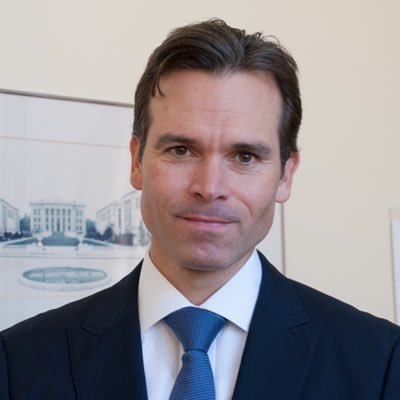
Nolan M. Kavanagh
@nolankavanagh
Followers
738
Following
5K
Media
119
Statuses
823
I study health, policy, and politics • MD/PhD student at @Penn & @Harvard • proud @UMich grad • 🏳️🌈 • he/him/his
Boston
Joined November 2011
🚨 NEW REVIEW 🚨 Who participates in the democratic process? Who trusts public institutions? And who turns toward anti-democratic political movements? In a new review for @WHO, we emphasize that people's health is central to these questions. 🧵 1/8
1
4
14
🚨 Excited to share our new article in @AnnualReviews. Working with @kristin_linn, @5harad, @AmolNavathe, and @ravi_b_parikh, we examine the fairness debates of seven prominent and controversial healthcare algorithms.🧵 https://t.co/80Sp6IcqZ3
1
5
25
A “free market” for less expensive health services might improve prices, but it would shut a ton of people out of care. People skip even high-value care when it costs a bit more. Esp. low-income folks. Is our goal just low prices or getting the right care to the right people?
The way to fix healthcare is for insurance to cover cancer, a few screenings, and everything else you pay for. A broken arm for a kid would not cost 10K plus if we had a transparent and free market. Insurance should cover catastrophic events only.
0
0
0
This is a false boogeyman. Both Sanders’s and Warren’s proposals allowed supplemental private coverage. Just like the single-payer systems in the U.K., Spain, etc., do. https://t.co/zNbtE5U5Kl
elizabethwarren.com
My plan for health care reverses the Trump Administration's sabotage of our health care, allows everyone in America to choose a Medicare for All option for little or no cost, and cuts costs for...
Medicare-for-all makes private purchasing of healthcare illegal. You’re not allowed to have private insurance. You’re not allowed to use your own money or your HSA to purchase healthcare. No direct primary care. No cash pay surgery centers. This will stifle innovation and
1
0
0
Uhh, so apropos of nothing, my research looks at how declines in health can drive people to the political extremes. Sometimes those extremes are on the far-right. In a forthcoming work, we find it can happen on the left. Here's a helpful review: https://t.co/eF1WFOyPJu
eurohealthobservatory.who.int
Policy Brief 61 by the European Observatory on Health Systems and Policies. Health is central to people’s lives yet an under-appreciated influence on politics. People in poor health often have...
0
1
7
The use of race in clinical risk models is heavily debated. While race-aware models can be more accurate, some are concerned about reinforcing racialized views of medicine. In our paper in @AnnalsofIM, we offer a new perspective on this debate. 🧵👇 https://t.co/1e8tJ75wVg
2
6
13
Thanks @AdamLBeckman for this 🧵 One of the concerns with pay for performance is that it can distribute payment according to population characteristics as opposed to quality of care for a given population Should we worry less about this in attempts to "pay for equity"? Well...
New, clever experiment with a powerful warning–Racial health disparities in Medicaid plans can merely reflect selection bias, rather than true differences in insurance plan performance. By @jwswallace, Chima D. Ndumele, @JMichaelMcW & team
1
12
36
Heads up to faculty: Consider introducing your program's job market candidates in random order or, better, separate tweets. The drop off in views and engagement in long threads is dramatic, so early-alphabet names tend to get more attention!
1
0
1
Lastly, some health politics folks who might be interested: @mayagoldman_ @ddiamond @noahweiland @sarahkliff @katie_thomas @landmanspeaking @dylanlscott @annawmathews @ByJessBartlett @_gaffknee @metraux_julia. Thank you for reading!
0
0
1
This review is a love letter to the health politics community, and I'm so grateful for their work: @onceuponA @povertyscholar @JacobBor @dhopkins1776 @askellyphd @mkruk @OberlanderUNC @SuzanneMettler1 @Julie6446 @aaronsreeves @jwswallace and so, so many more.
1
0
1
Here's our @WHO @OBShealth webinar, where we preview the brief and answer questions about it. https://t.co/jFk7S5UbvX
1
0
0
Link to the brief: https://t.co/eF1WFOyhTW Co-authored with @armenon_memorie. Grateful for @scottlgreer and @Flavia_Topan.
eurohealthobservatory.who.int
Policy Brief 61 by the European Observatory on Health Systems and Policies. Health is central to people’s lives yet an under-appreciated influence on politics. People in poor health often have...
1
1
1
We talk about the limits of causal identification in the review, but health is clearly tied to people's politics. If we want functional, accessible democratic institutions, then we must have a population that is healthy enough to participate in them. 🧵 8/8
1
0
0
Policy makers can engage patient advocacy groups and make it easier for people in poor health to vote. Also, they can support health-promoting policies with universal, easily identifiable benefits. This can create a virtuous cycle — rather than the vicious one we face. 🧵 7/8
1
0
0
What can we do about it? For one, clinicians and health systems can support affirming health care experiences, rebuild trust, and encourage their patients to civically engage. We especially love the example of @AlisterFMartin and @Vot_ER_org. 🧵 6/8
2
2
2
2. Partly due to stigmatizing and demeaning experiences, people in poor health trust the health system, public institutions, and democracy less. 3. As a result, people in poor health are more likely to gravitate toward anti-establishment populist parties. 🧵 5/8
1
0
0
1. People in poor health are much less likely to vote, but they engage in politics in other ways, like signing petitions and writing letters. Patient advocacy groups are especially helpful in politically engaging this population. We love the example of @eupatientsforum. 🧵 4/8
1
0
0
As a result, health may be a powerful influence on people's political preferences and behaviors. We reviewed over 170 articles on the topic, ranging from political science to economics to public health. We summarized the literature in a few key points. 🧵 3/8
1
0
0







